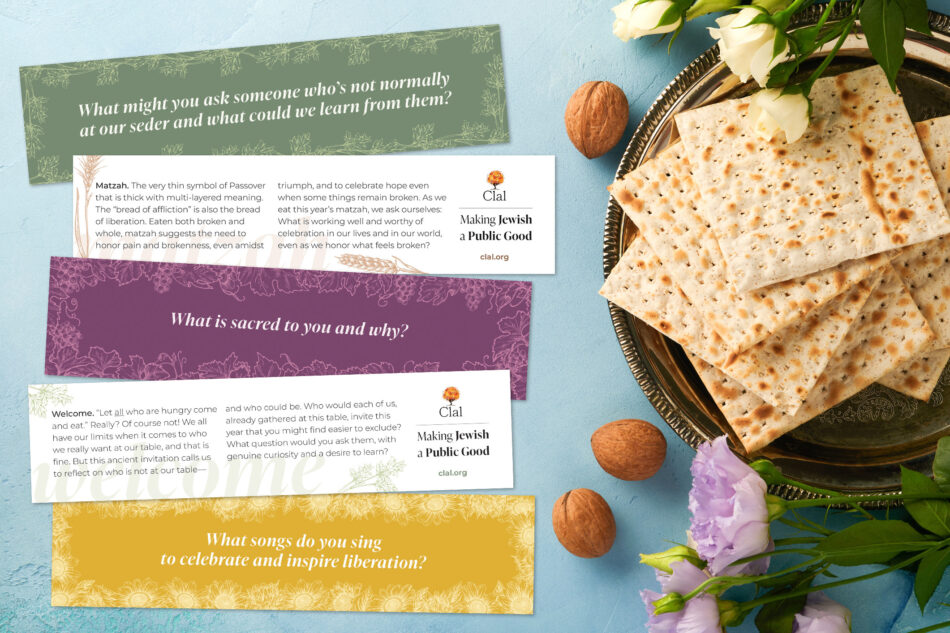The world feels incredibly disordered to so many of us right now, whether it be political disorder, economic disorder, or cultural disorder. That’s not the easiest place from which to celebrate the Passover promise of freedom and the positivity it’s meant to convey. It’s even harder to celebrate liberation when that very word feels, at least to many of us, to have been turned on its head when the President declared last Wednesday to be “Liberation Day.”
Of course, all the disorder and anxiety we feel — and it is felt in every sector of society, even though we tend to think that it is only affecting “us” and not “them,” whoever that is for each of us — is why we need the Seder even more this year. The word “seder” means order, after all, and greater order is another thing that almost all people crave right now, regardless of their political, economic, or cultural views.
In fact, we don’t need to celebrate order nearly as much when we have it as we do when we don’t have it.
That insight has been with us since the ancient Israelites celebrated the first Seder, almost 3,500 years ago in Egypt, in the midst of the disordered reality of slavery. The first Seder was a celebration not of freedom and liberation already achieved, but of the promise of them, and the faith that they would come. In fact, it reminds us that the ability to celebrate the freedom and order we most want is a critical tool for turning our wants into realities. It’s not easy, but that doesn’t mean we can’t do it.
In fact, the classic Rabbinic task of the Seder is helping us see ourselves as though we ourselves had journeyed out of Egypt—and therefore as people who observed that first Seder in Egypt. The implication is that we too have within us the ability to celebrate the order and the freedom we want, before we have them. The real freedom we have is the freedom to celebrate the possible ahead of the actual. And yes, that means even, or especially, in hard times.
In the famous Haggadah story, the Sages are up all night discussing the promise of redemption and the meaning of freedom, and they would have gone on doing so if not for being interrupted by their students telling them that the sun had risen and it was time to recite the morning Sh’ma. How did the sages not know that the sun had risen? They were talking in a cave, because the practice of Torah study had been banned by Roman Imperial edict. They were studying in secret while their students stood as lookouts.
Again, we are reminded that the practice of Seder, of celebrating order and freedom, is especially important when order and freedom feel most needed. We are the inheritors of a hundred generations of people who did just that. And if they could do, so can we.
I don’t pretend to know the answers to the many challenges we face, and I have very limited trust in those who say that they do, even when I happen to like their answers. Why? Because I know that real and healthy community, especially in divided times, is created much more by our ability to share questions than it is by fighting over which are the right answers.
In the hopes of expanding the range of questions we can share, even and especially when we don’t share the same answers, Clal has created a few new questions on our Passover Bookmarks to bring to your Seder this year. They celebrate our tradition’s ongoing centering of questions, and we hope they will help each person at your Seder find the answers they need most, even as they appreciate others whose answers they may not like.
These are the kinds of questions that can continue to build our capacity to find and celebrate the order and the freedom we want, precisely when we may feel we most need it. If they did it in Egyptian slave quarters, and they did it in caves in the Land of Israel, I know that we can do it in 21st-century America.


